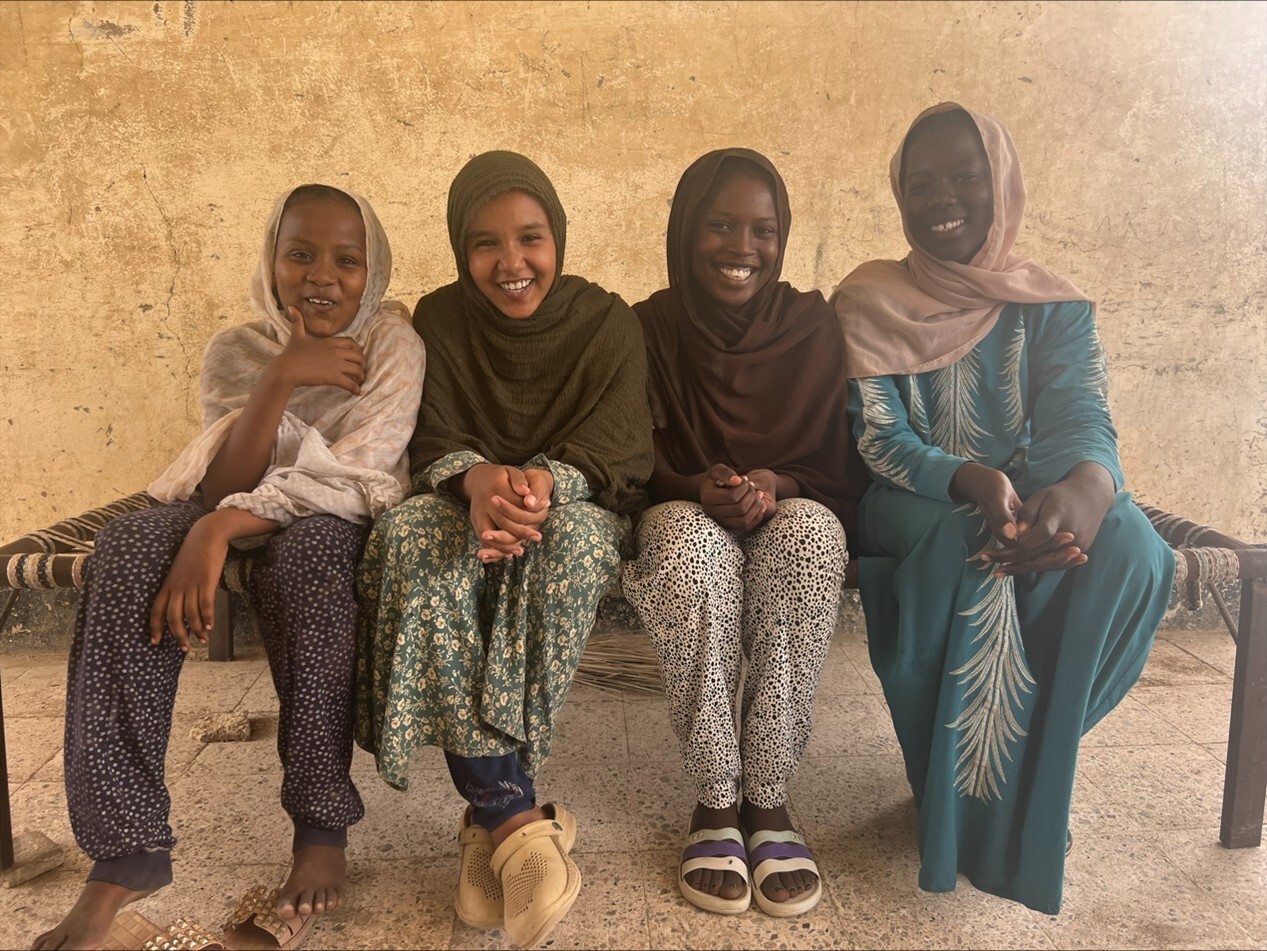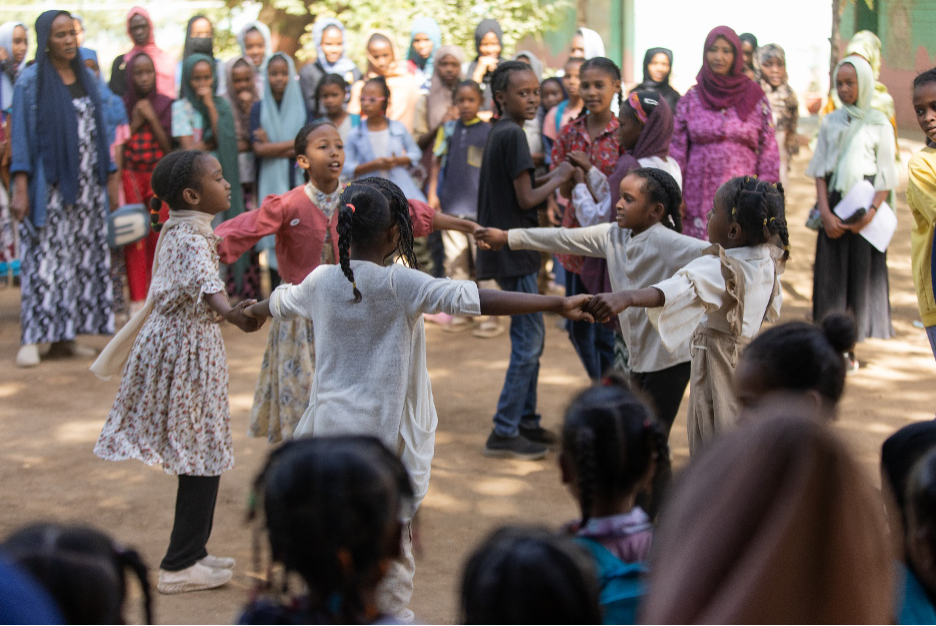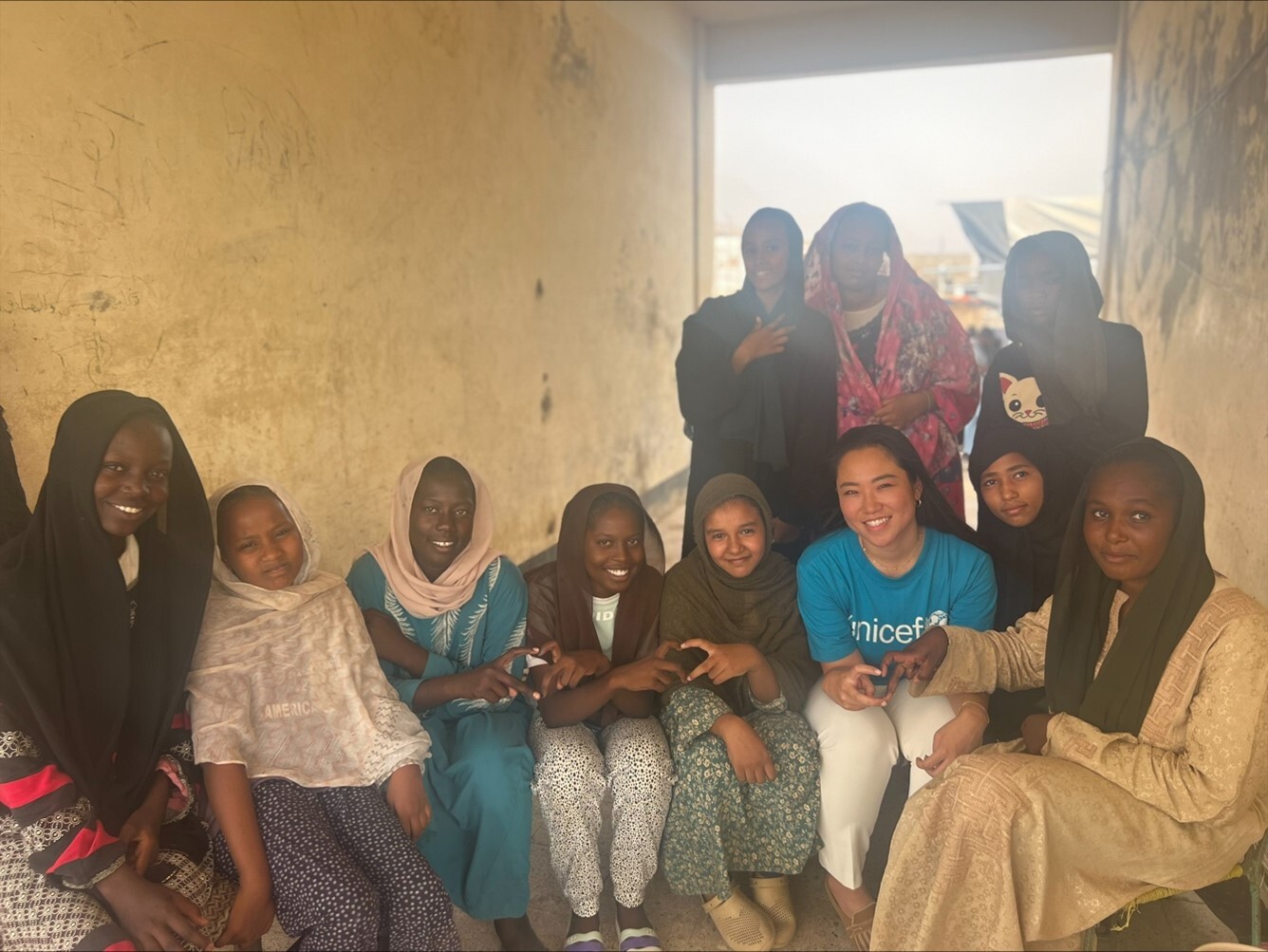Education as a lifeline: The critical role of integrating MHPSS in emergency education response in Sudan
Turning Classrooms into Sanctuaries

In Sudan, April 15, 2023, was meant to be an ordinary day for children. They were supposed to be studying for exams or daydreaming about their summer plans. However, the country plunged into chaos with a sudden escalation in conflict.
The conflict in Sudan has resulted in 9.4 million people fleeing their homes and left 24.8 million people in need of humanitarian assistance, including more than 14 million children (UNICEF, 2024; OCHA). More than 7 million people are on the move, with over 2 million crossing borders in search of safety (UNICEF, 2024). This has led to the largest child displacement crisis in the world, with more than 5 million children affected (UNICEF, 2024). As a consequence, Sudan is now on the brink of facing one of the largest learning crises in the world, with close to 18 million children not in school and in danger of not returning to learning. The situation is critical, and urgent measures need to be taken to ensure that children have access to education.
During periods of turmoil, it's not uncommon to hear the argument that education isn't a priority in emergencies and that efforts to support learning continuity can wait. However, for the UNICEF team in Sudan, education was non-negotiable. We understood that a school or learning space offers more than just academics; it serves as a crucial support system for children, offering stability, structure, and a sense of safety and normalcy during times of crisis.
Creating Safe Havens
Two weeks into the crisis, the education team from UNICEF in Sudan quickly started setting up safe learning spaces. The goal was to transform the established education opportunities into a robust support network for children's mental health and well-being within the framework of structured learning and psychosocial support integration. These spaces were designed to be more than just child-friendly learning spaces — they offered children sanctuaries where they found peace and stability. We understood that addressing the emotional needs of children was crucial before effective learning could take place. The emphasis in these learning environments was not on only academic accomplishments, but creating an environment where children felt safe and supported. These were places where children could replace fear with play, learning, and moments of joy. “We knew that these children needed a sense of normalcy. They needed their peers, trusted adults, and a space to be children again,” Marie, UNICEF Education Manager, explained.
Stories of Resilience and Recovery
UNICEF's work in Sudan went beyond addressing immediate needs; it focused on building a resilient education system capable of enduring future challenges. Through the team’s efforts and collaboration with partners, the Safe Learning Spaces – called “Makanna” or “our space” in Arabic — serve as one-stop centers for structured learning, psychosocial support through recreation and play, and referrals to healthcare and protective services. These spaces also include WASH facilities, creating an environment where children can learn, play, and heal. Makanna have been strengthened to support children’s mental health and provide a sense of stability in their lives.
In the Abdullah Naj Makanna located in the internally displaced persons (IDP) gathering point in Red Sea state, I met Yumma, a 12-year-old girl who fled from Khartoum to Red Sea state to escape the war. She is currently learning through e-Makanna, 'my space,' where children can access structured digital learning content, water and sanitation services, and essential psychosocial support.

Yumma's story exemplifies the positive impact of mental health support in a structured learning environment. She shared, "I was so scared when the soldiers came. My mom and I ran away to be safe. Here, I feel safe. I can play with my friends, and learn new things, and the teachers help us when we are sad. I love e-Makanna because it makes me feel happy and safe. One day, I want to go to university and be a lawyer to help people.”
In Sudan, the power of education is clear. It has the incredible ability to help children regain a sense of safety and normalcy in the midst of chaos. By equipping them with essential skills and support, education empowers them to overcome the immense adversities they encounter daily. UNICEF and its partners have enabled children to continue learning, playing, and thriving despite difficult circumstances. UNICEF Sudan's inspiring story showcases the profound impact of integrating mental health and psychosocial support into education, highlighting that education is a source of hope even in the most challenging situations.
 Marie Kunimatsu is an Education Manager at UNICEF Sudan, committed to ensuring learning continuity and access to quality education for marginalized children and adolescents. She holds a BA in Education and an MA in Economics of Education. Marie specializes in education policy planning and education in emergencies. She is experienced in managing education and skills development programmes across Asia, Africa, and the Middle East, drawing on her diverse experiences with UNICEF, the World Bank, and academia in Japan.
Marie Kunimatsu is an Education Manager at UNICEF Sudan, committed to ensuring learning continuity and access to quality education for marginalized children and adolescents. She holds a BA in Education and an MA in Economics of Education. Marie specializes in education policy planning and education in emergencies. She is experienced in managing education and skills development programmes across Asia, Africa, and the Middle East, drawing on her diverse experiences with UNICEF, the World Bank, and academia in Japan.
The views expressed in this blog are the authors' own.



